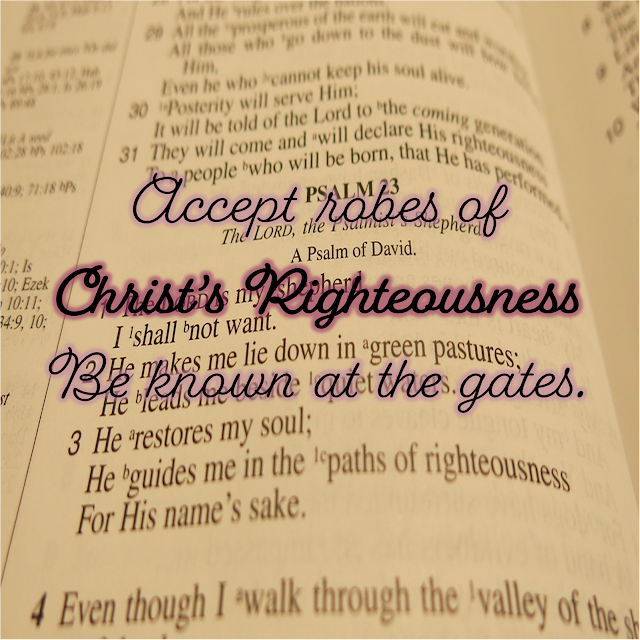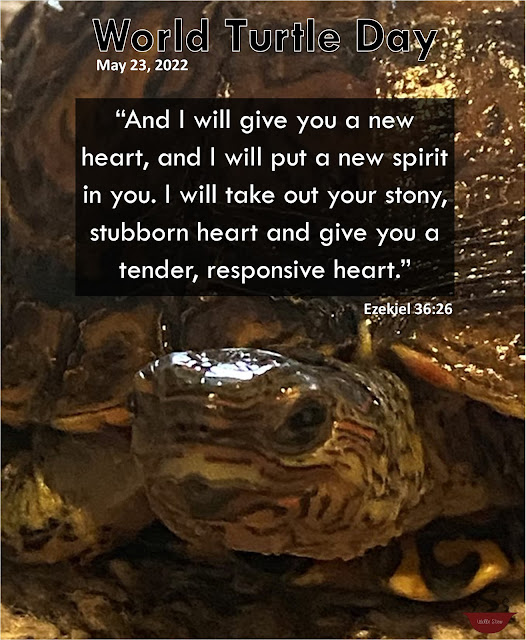Proverbs 31: Week Fifty-One | The Wolfe Notes
Welcome to week fifty-one of our Proverbs 31 journey. This week we engage in activities that work toward memorizing and comprehending the poem from beginning to end. If you'd like to return to one of our previous stops, let our "Wolfe Notes" guide you.
- In January we examined our value with the help of Proverbs 31 verses 10 and 29.
- In February we learned what uplifting means by looking at Proverbs 31:11 and 23.
- In March, we considered the virtue of respect by studying Proverbs 31:12 and 28.
- In April, we trained to be hardworking with Proverbs 31:13 and 19 as our instructors.
- In May, we saw what it takes to be resourceful by examining Proverbs 31:14 and 21.
- In June, we developed our caring muscle by exercising Proverbs 31:15 and 22.
- In July, we practiced being savvy with help from Proverbs 31:16 and 27.
- In August, we witnessed exemplary behavior outlined in Proverbs 31:18 and 31.
- In September, we found what being necessary looks like from Proverbs 31:20 and 24.
- In October, we exercised strength in Jesus from Proverbs 31:17 and 25.
- In November, we rehearsed being well-spoken by looking to Proverbs 31:26 and 28.
- In December, we reflect on becoming godly by looking to Proverbs 31:30 and the entire poem.
Contents:
Organization Research the organization of the poem.
*A New Acrostic that honors the original theme.*Preferences Explaining your favorite and least favorite verses.
What is still weird? Research something that still doesn't sit right with you.
*Connections Between all 12 virtues.
*Revision
Paraphrase each verse.
*The links below bring you to the beginning of each verse's corresponding Wolfe Notes.
- 10. The most valuable possession you can ever acquire is found in your righteous soulmate - Jesus. (Proverbs 31:10)
- 11. You can safely entrust your heart to Him and when you do you'll find you lack nothing. (Proverbs 31:11)
- 12. He will bring you only good and never evil indefinitely. (Proverbs 31:12)
- 13. His seeks to cover you in truth and grace and He willingly does the work to make it happen. (Proverbs 31:13)
- 14. He will sustain you with nourishment from heaven - your daily bread, or manna -and He goes the distance to bring it to you. (Proverbs 31:14)
- 15. While you still sleep, He is awake preparing your daily bread: all you, your household, and those who serve you need to face the day. (Proverbs 31:15)
- 16. He carefully considers where to invest His efforts and empties all of Himself through love, joy, peace, patience, kindness, goodness, meekness, faithfulness, and self-control to yield a return of these attributes grown in His beloved. (Proverbs 31:16)
- 17. With an awareness of the forces against Him, He prepares His beloved to face them in His strength. (Proverbs 31:17)
- 18. Because He knows the work He is doing is good, He will never stop working no matter how dark the night. (Proverbs 31:18)
- 19. His hand calms chaos; He holds back destruction. (Proverbs 31:19)
- 20. He offers guidance to those who lack faith and reaches out to comfort the broken-hearted. (Proverbs 31:20)
- 21. He never fears for the members of His household, for they are clothed in His blood of righteousness.(Proverbs 31:21)
- 22. He makes elaborate coverings to protect, join together, and atone His household while donning clothing that mark His authority (truth) and righteousness (grace) so others can see it too. (Proverbs 31:22)
- 23. Because you have bound yourself to Him, you will be known at the gates when you meet the elders of heaven. (Proverbs 31:23)
- 24. Wanting all to be known, He handmakes robes of righteousness, speaks persuasively and pervasively about their benefits, and exchanges them to anyone who buys what He's selling. He delivers truth to people who partner with Him to spread the good news. (Proverbs 31:24)
- 25. Truth and grace are what you see when you look at Him. He will rejoice when you come to know Him. (Proverbs 31:25)
- 26. He only speaks truth and gracefully guides all who follow Him to the Father. (Proverbs 31:26)
- 27. He is always watching over His household and He will never make a choice that leads to hollowness or destruction. (Proverbs 31:27)
- 28. All who have grown up in Him know that God's favor is on Him. Those who unify themselves to Him praise Him for His goodness and faithfulness. (Proverbs 31:28)
- 29. Many ways of living seem good, but living life according to His way exceeds all others. (Proverbs 31:29)
- 30. For popularity is deceiving and allure is fleeting, but living with trust and faithfulness in God is praiseworthy. (Proverbs 31:30)
- 31. Return to Him what He nurtured in you (love, joy, peace, patience, kindness, goodness, meekness, faithfulness, and self-control) and let all who have been wrought in Him, praise Him publicly and eternally. (Proverbs 31:31)
*Words Matter
Choose one word to represent each verse.
10 Value
11 Trust
12 Good
13 Seeks
14 Afar
15 Meat
16 Field
17 Strength
18 Candle
19 Spindle
20 Poor
21 Snow
22 Coverings
23 Gates
24 Girdles
25 Rejoice
26 Wisdom
27 Manage
28 Children
29 Excel
30 Fear
31 Praise
Organization
Research the organization of the poem.
Notes from Chiasm Exchange.
- A chiasm is a set of two mirrored phrases. (Grammarly)
- The entire poem in Proverbs 31:10-31 is a chiasm with this reflexive structure:
- Woman (begins and ends the poem)
- Husband (second and second to last)
- Household (third and third from last)
- Beyond the household (fourth and fourth from last)
- Clothing (fifth and fifth from last)
- In the gates (at the middle and end)
- *Conclusions: The first four depict the hierarchy of our attention, supposing Wisdom (Jesus) is the "woman": God first, husband (spouse) second, household third, and finally beyond the household. The "clothing" wraps itself around "in the gates" - which is intriguing as we must be clothed in robes of righteousness to enter the gates of Heaven (Open Bible verses on righteousness).
Notes from "Acrostics in the Bible"
- Hebrew acrostics were used as a way of saying "the entire topic has been examined and these are the findings", comparable to the idiom, "From A to Z"
- Acrostics are also encountered frequently in Psalms (25, 34, 37, 111, 112, 119 & 145) and each chapter in Lamentations is its own acrostic.
- The first word in each line of the Proverbs 31 acrostic is as follows: woman, trusteth, doeth, seeketh, she, also, considereth, girdeth, peceiveth, hands, palms, not coverings, known, linen, strength, mouth, looketh, rise up, many, deceitful, give
- Conclusions: Interesting that the first words are not necessarily the "strong" words of each verse, but it also is logical as to make an acrostic work, you can't always choose the most important word to be the first word.
*A New Acrostic
That honors the original theme.
Value virtue
Actually trust
Lead to God
Use truth and grace willingly
Eat manna from heaven
Allocate necessary nourishment
Work purposefully
Offer strength
March faithfully
Avoid chaos and destruction
Notice lack and need
Wear scarlet
Honor God
Open up
Face facts
Enjoy your standing
Alert others to truth and grace
Reign in life
Search for godly yield
Glorify God
Obey God
Display His works
Actually trust
Lead to God
Use truth and grace willingly
Eat manna from heaven
Allocate necessary nourishment
Work purposefully
Offer strength
March faithfully
Avoid chaos and destruction
Notice lack and need
Wear scarlet
Honor God
Open up
Face facts
Enjoy your standing
Alert others to truth and grace
Reign in life
Search for godly yield
Glorify God
Obey God
Display His works
*Preferences
Explaining your favorite and least favorite verses.
- My favorite verse is verse 12: "She does him good and not evil all the days of her life." From a personal standpoint, I want to do good and not evil all the days of my life. From a spiritual standpoint, it is so reassuring to know that I can completely trust in God because He will do good and not evil for me all the days of my life.
- My least favorite verse is verse 23: "Her husband is known in the gates when he sitteth among the elders of the land." Which I love the idea of my husband, both earthly and spiritual, being known at heaven's gates - they should be! And when it comes to personally being known at the heavenly gates it fills me with wonder, excitement, and anticipation. But, when I think about being known by others in the here and now, that frightens me.
What is still weird?
Research something that still doesn't sit right with you.
Why was Proverbs written? If Solomon was the wisest king, why would he have strayed? And if he strayed, should we really be listening to his advice?
From Got Questions' "Summary of the Book of Proverbs"
- Proverbs was written to share wisdom, or the ability to see people, events, and situations as God sees them, which Solomon was able to do because he asked God for wisdom. (I Kings 3:5-9)
- Proverbs repeatedly asks us to seek, get, and understand wisdom which begins with fearing the Lord.
- In Christ we find the answer to the Lord's wrath and justice
- Christ embodies God's wisdom (Colossians 2:2-3)
From Got Questions' "Why did God allow Solomon to have 1,000 wives and concubines?"
- Solomon lived in direct violation of God's three prohibitions outlined in Deuteronomy 17:14-20
- Married many women which led him to follow other gods (I Kings 11:4, 7-8)
- Amassed many horses (I Kings 4:26)
- Acquired many riches (2 Chronicles 9:13-29)
- Solomon knew what was right, he had been given discernment from God, but chose not to follow it.
- Ecclesiastes, written at the end of Solomon's life, summarized what he learned. While he sought happiness in riches, women, and entertainment, all of it was vanity. The only true happiness, the only thing of worth, he found, is fear of God.
*Conclusions: Solomon wasn't the wisest man who ever lived because he didn't act on the wisdom given to him. Jesus was the wisest man who ever lived. If Solomon wrote of wisdom as a woman, it follows that women were a weakness of Solomon. He likely regularly battled choosing wisdom over women. We can heed Solomon's advice and glean a warning from his choices. None of us are perfect, but Christ; that's the lesson we can learn from the life of Solomon.
*Connections
Between all 12 virtues.
*What follows adds the remaining three virtues to connections made in week thirty-nine.
- In private, He WORKS HARD while MAKING WISE CHOICES with the BEST RESOURCES.
- In public, He CARES for others by being RESPECTFUL and UPLIFTING.
- He can because, He is GOD, STRENGTH, and WISDOM.
- So, we regard Him as VALUABLE, NECESSARY, and EXEMPLARY.
The connections of these verses assume the "woman" as Wisdom which is Jesus, God incarnate. The poem is a portrait of who He is, our only worthy model.
Final Thoughts
What a beautiful poem for God. What inspiration for us! As I'm committing this poem to memory, I'm finding places that need refining, opportunities to bring Him glory, reminders of provision beyond my imagination, and a steady sense of thankfulness.
Thank you, God, for who You are. Thank you for sending your only begotten Son to save us from our sins so that we can experience eternity with you. Thank you for never giving up on us though we doubt, seek provision other than yours, and lift our own desires higher than yours. Bring us back! We hear you crying out to us and we come willingly. It is You we choose; we're bound to You: Your ways, Your provision, Your love, both now and forever.
Growing with You,
Review Week 50 or
Move on to Week 52.
Sample these related posts:
Interested in more faith-related blogs? Then you're looking for Faith Food. At Faith Food, you'll find links to all our faith-related blogs and a short description of each.




Comments
Post a Comment
Thank you for adding your flavor to the stew.